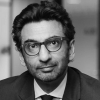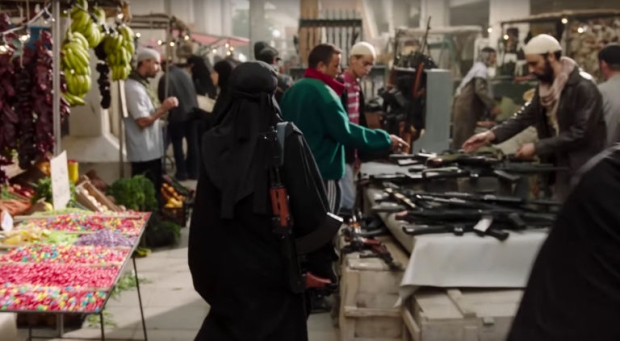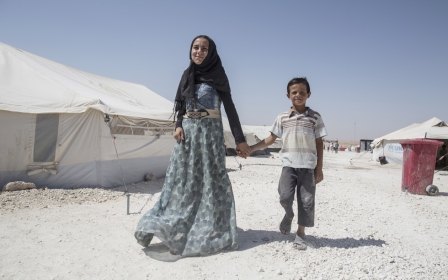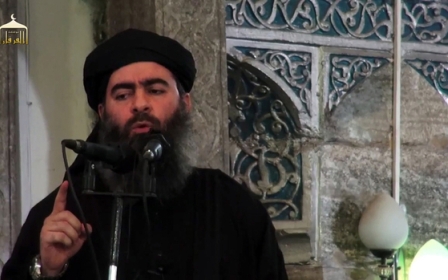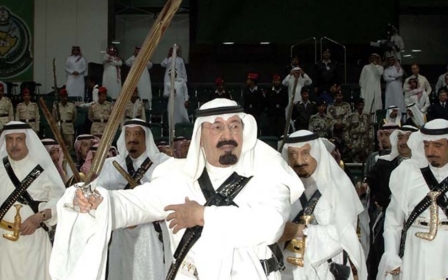'The State': A horror story that says nothing about why Brits join IS
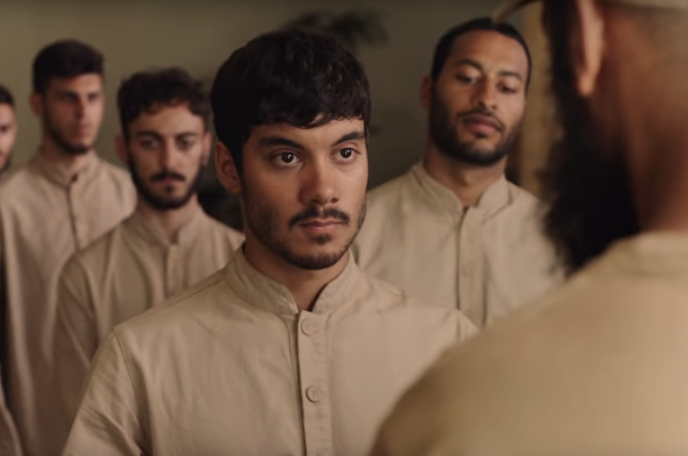
In watching The State - the four-part drama series written by Peter Kosminsky and aired on Channel 4 earlier this month about young Brits who travel to Syria to join Islamic State – I was satisfied enough with the details about life in the so-called Islamic State. After all, it is a drama, which means that fictionalisation is necessary in order to introduce character development and change.
Yet while reports suggest that the research behind this programme has been comprehensive - and this seems to ring true in some parts of the show - there are clearly omissions, some of which have significant ramifications.
Most critically, there was nothing on the backgrounds of the four Brits that end up there. I was keen to understand what personally motivated these young men and women to join IS in the first place, but the series did not touch on any of these questions. This was disappointing, but not unexpected.
All we can deduce is that these four British young men and women were motivated by various aspirations with regards to migration to the self-declared Caliphate. That the Islamic State was self-declared, without consensus or a wider acceptance among the Muslim world seemed irrelevant to these four.
There was also nothing on the origins of The State – we were also told nothing of the stories of the zealous IS chief propagandists who are tooled up ideologically. What are their stories? Were they born brainwashed?
Horror without context
It seems that the director’s aim was simply to depict life in the Islamic State as a horror film, with all the vicissitudes that come with living in a war-torn part of the world that – at least in Iraq - has seen no political or economic stability for the greater part of a decade and a half.
But even then, it would seem that the representation of reality of life in the self-declared Caliphate was glossed over. The searing heat would make life unbearable for many with Western European backgrounds and clean water, sanitation and general living difficulties have also been hardly touched on.
And watching the first episode felt like an advert for a free Butlin camp with military training for the boys and mastering cooking skills for the girls, replete with (alcohol-free) pool parties, invariably setting up the bromances (or sister rivalries) that inevitably will be tested later.
So what is the aim of the programme? Is it to explain that the bond of humanity remains in spite of all the pressures on it from those who would wish to separate themselves from the rest of us? Did this mean having to create a "them" and "us" division to start with, only to have it eliminated as part of the self-realisation stories of these four Brits?
Did the programme mean to say that it takes all sorts to join the Islamic State, which consists mostly of a renegade bunch of freaks, hell-bent on avoiding hell in the after life, thus normalising radicalisation?
Roots of radicalisation
Much of scientific analysis in relation to understanding radicalisation or the processes of becoming radicalised appreciates that, often, these young people are clueless about Islam. They are driven by more personal aspirations, generally to do with coming to terms with identities and the lack of political agency, or a sense of grievance that is a response to foreign policy failures resulting in the further destabilisation of parts of the Middle East.
There are also woeful conditions facing many British Muslim communities. In particular, in the older parts of towns and cities across the country, where being trapped in localities is not a choice but the reality of post-war racism, immigration, housing and economic policy.
With all of the attention focused on individuals and their personal journeys, many studies of radicalisation completely omit the dynamics that created the environmental conditions that shape the mind to take action in certain ways.
Far too much policy thinking focuses on the sharper end of counterterrorism and deradicalisation, which often misses the reality of structural disadvantage, but is necessary in the light of the urgent need to prevent terrorism.
What was interesting to see was the unpapering of the ideology itself: these united colours of behead-a-ton have an eschatological dream to be defeated in Bilad al-Sham (territories east of the Mediterranean, including what is known today as the Levant, but also lower Turkey and upper Egypt), only to rise up in Jerusalem, rallying behind Jesus, who will defend all the God-fearing people of the world against the anti-Christ. This felt like a revelation for the researchers behind the programme more than anything else.
No overarching theory
It seems both The State and the previous Kosminsky Islamist radicalisation drama for Channel 4, Britz, from 2009, had similar starting points. Normal, even professional, people can be drawn by a warped ideology and the lure of violence – violence that is legitimised ideologically and militarily.
Perhaps it is better to say that anyone can be inveigled by a so-called cause because they lack something in themselves, or their immediate surroundings push them psychologically, politically or culturally.
On the topic of Islamist radicalisation, there are many different issues at play, including the very possibility that religion and faith identity are the least important of all factors
One of the major problems with trying to understand extremism and the processes of radicalisation is that there is no single overarching explanation. Different factors operate in different contexts for different people, depending on different circumstances.
But there is a particular problem with Islamist radicalisation. The dominant paradigm focuses on Islam and radical influences within the reading of the religion as demonstrated in utterances of the ideologues, the commanders and the hardened foot soldiers of The State. By contrast, when it comes to far-right radicalisation and political violence, religion is never extrapolated as a specific causal factor.
It was quite difficult to connect with the characters in a meaningful way, apart from feeling sorry for them because of how they had been duped by it all.
The extensive academic research on the topic of Islamist radicalisation in particular demonstrates that there are many different issues at play, including the very possibility that religion and faith identity are the least important of all factors.
This is important to appreciate because the general tendency is for individuals persuaded by such Islamic political violence are often the least well versed in scripture, doctrine or theological principles within Islam.
What's Islam got to do with it?
Islam has very little to do with any of this, although it is clear that the perception on the part of young people motivated to migrate is that they are acting out what would be expected of them as good, pious and dutiful believers.
Racism, discrimination, stigmatisation, vilification, misrepresentation and misrecognition in relation to being a Muslim and a minority, in particular in the UK context, are rarely addressed
In a much-politicised sphere of intellectual and policy thinking, as well as community responses, the common approach tends to single out deradicalisation through re-conceptualisation of religious identity, with the idea to limit resistance that might lead to violence by channelling these cognitive fissures into a more progressive reading of the faith.
While all of that empowers individuals away from a proclivity towards violence, it does nothing to alter their material realities, which are often the precursor to resistance and then ultimately violence.
Racism, discrimination, stigmatisation, vilification, misrepresentation and misrecognition in relation to being a Muslim and a minority, in particular in the UK context, are rarely addressed, and specifically in relation to radicalisation. The problem with thinking that a deeper understanding of Islam would lead to the cure suggests that the problem is entirely one of the religion.
The other conundrum is to think of Islam as a universal, singular concept when the reality is a coming together of disparate interests, perspectives and readings of the faith among populations variously differentiated by ethnic, national and post-colonial realities.
More questions than answers
Watching this programme was not easy. But while there was clearly some attempt to normalise existence, with depictions of life as wholesome and every day, the reality of living in Iraq and Syria today, in particular in territories occupied by IS, is arguably far more horrific, destabilised and nuanced than any drama could conceivably wish to depict.
As far as any dramas go, The State is no different from others, as it attempted to add character development into the plot as it was unfolding, while, in this case, also presenting a narrative.
But in the end, the drama left far more questions than answers, leaving the viewer in an uncomfortable space. Are we supposed to feel sympathetic towards these characters? Or are we supposed to demonise the useful idiots who ultimately become vindictive actors at the behest of a cruel, vicious and utterly reprehensible body of people?
Perhaps these unanswered questions were left for effect, but in a world in which nuance is replaced by conformity, where individual thinking is replaced by tribalistic group norms, in particular online, people need to be guided more carefully.
In a climate where the fear, loathing and misrepresentation in relation to Islam and Muslims are very much the norm, my worry is for the potential of such dramatised openings to create further misunderstanding rather than enlightenment.
- Professor Tahir Abbas FRSA is currently Visiting Senior Fellow at the Department of Government, London School of Economics. His recent books are Contemporary Turkey in Conflict: Ethnicity, Islam and Politics (Edinburgh University Press, 2016), and the four-volume edited collection Muslim Diasporas in the West (Routledge, 2017). He recently published an article on the ‘Trojan Horse’ plot, published as ‘The Inside View on the “Trojan Horse” Plot and British Muslims in Schools’ in the Journal of Muslim Minority Affairs (2017).
The views expressed in this article belong to the author and do not necessarily reflect the editorial policy of Middle East Eye.
Photo: A scene from the trailer for Channel 4's series, The State (YouTube)
Middle East Eye propose une couverture et une analyse indépendantes et incomparables du Moyen-Orient, de l’Afrique du Nord et d’autres régions du monde. Pour en savoir plus sur la reprise de ce contenu et les frais qui s’appliquent, veuillez remplir ce formulaire [en anglais]. Pour en savoir plus sur MEE, cliquez ici [en anglais].


